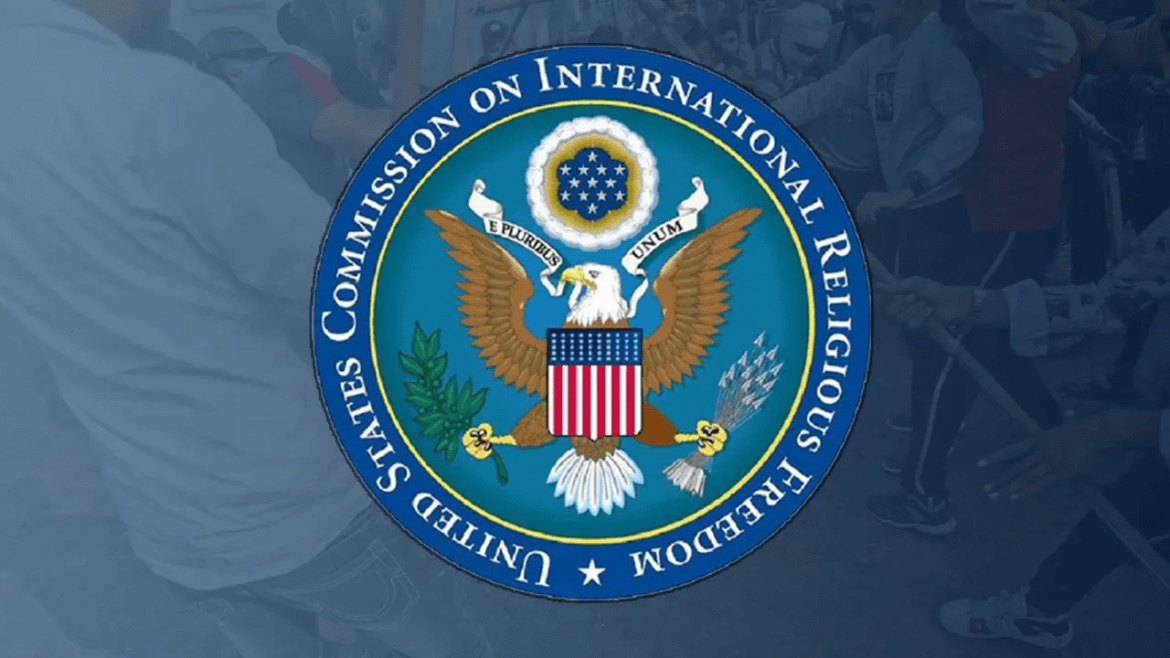AI Generated Summary
- The USCIRF’s 2025 annual report, released on March 25, alleges a continuing decline in religious freedom in India and recommends designating the country as a “Country of Particular Concern” (CPC).
- “This report follows a familiar pattern—cherry-picked data, unverified sources, and politically charged narratives aimed at undermining India’s standing as a vibrant democracy and a pluralistic society,” Jaiswal said in a sharply worded statement.
- The latest report from the United States Commission on International Religious Freedom (USCIRF) has triggered strong backlash from India, with officials denouncing the annual document as a politically motivated attempt to malign the country’s global image.
The latest report from the United States Commission on International Religious Freedom (USCIRF) has triggered strong backlash from India, with officials denouncing the annual document as a politically motivated attempt to malign the country’s global image.
The USCIRF’s 2025 annual report, released on March 25, alleges a continuing decline in religious freedom in India and recommends designating the country as a “Country of Particular Concern” (CPC). It further proposes sanctions against India’s external intelligence agency, the Research and Analysis Wing (R&AW), in light of alleged plots to assassinate Khalistani separatists abroad.
India’s Ministry of External Affairs (MEA), however, dismissed the report as baseless and prejudiced. MEA spokesperson Randhir Jaiswal accused the commission of peddling misinformation and called for USCIRF itself to be labeled an “entity of concern.”
“This report follows a familiar pattern—cherry-picked data, unverified sources, and politically charged narratives aimed at undermining India’s standing as a vibrant democracy and a pluralistic society,” Jaiswal said in a sharply worded statement.
He emphasized that India, home to 1.4 billion people of all major faiths, remains a beacon of religious coexistence and tolerance. “USCIRF’s continued distortion of facts and its reliance on dubious individuals for its assessments expose its true agenda,” he added.
Disputed Victim List Sparks Credibility Concerns
A closer look at the report, as analyzed by OpIndia, reveals inconsistencies that have further fueled skepticism. The report includes a so-called “victim list” organized by religion—yet even a cursory review of the individuals featured has raised questions about the report’s authenticity.
Among the “Hindu victims” listed is Gautam Navlakha, a journalist-activist currently facing charges from India’s National Investigation Agency (NIA) over alleged links to Pakistan’s Inter-Services Intelligence (ISI). Court documents cited by the NIA suggest that Navlakha had direct correspondence with convicted ISI agent Ghulam Nabi Fai, even writing to a U.S. judge seeking clemency for Fai in a terror-funding case.
Another controversial inclusion is Shoma Sen, a former academic accused of Maoist links and arrested for her alleged role in the 2018 Bhima Koregaon violence. The case, which included charges under the Unlawful Activities (Prevention) Act, also uncovered an alleged plot to assassinate Prime Minister Narendra Modi—a plot in which Sen’s name surfaced during investigations.
Activists Devangana Kalita and Natasha Narwal, both affiliated with the far-left collective Pinjra Tod, are also named in the report. The two were arrested under UAPA provisions in connection with the 2020 Delhi riots, which left over 50 people dead. Both activists are accused of inciting violence during the anti-CAA protests and have ties to radical platforms such as The Wire and NewsLaundry, known for promoting anti-Hindu narratives, according to critics.
Teesta Setalvad, a prominent activist listed under “unspecified” religious identity, has also been a longstanding controversial figure. Arrested in 2022 for allegedly coaching witnesses in the Gujarat riots cases, Setalvad has faced scrutiny over her NGO’s funding and role in communal incidents. A special NIA court earlier this year flagged her organization and others for potentially inflaming sectarian tensions, including in cases such as the Chandan Gupta murder.
Growing Disillusionment with USCIRF
India has routinely rejected USCIRF’s annual reports as biased and lacking credibility. Critics argue that the commission consistently relies on politically affiliated sources, ideologically driven NGOs, and questionable data to draw sweeping conclusions about India’s internal affairs.
“USCIRF has lost the moral authority to comment on religious freedom anywhere in the world,” said an analyst with the Indian Council for World Affairs. “It operates with a clear agenda—to undermine democracies that don’t align with its ideological framework.”
The MEA echoed this sentiment, noting that “the USCIRF has shown little interest in understanding the complexities of India’s social fabric or in acknowledging the peaceful coexistence of its religious communities.”
As diplomatic friction brews, the report’s recommendations—if acted upon—could further strain U.S.-India relations at a time when strategic ties between the two democracies are crucial in the Indo-Pacific region.
For now, India has made it clear: it will not accept external characterizations that ignore facts and threaten the country’s hard-earned reputation as a secular, democratic nation.




